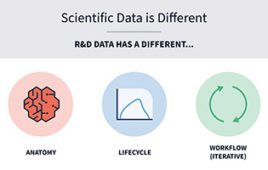Generation Gap Affects Mathematics Mentor-Protégé Relationships
A study of mentor-protégé relationships has found something that parents and children have known for a long time: the generation gap is real, and it matters. It not only affects communication, but also who mentors young mathematicians successfully and who does not.
Researchers from Northwestern University analyzed 60 years of a “family tree” of mathematicians and the doctoral students they advised. They found very successful academics do a good job mentoring students during the first third of their careers, but do a bad job during the last third of their careers.
“It’s a phenomenon in our culture that as you gain more importance and success you are expected to oversee more and more people, which means that face time with your protégés goes down,” said first author of the study R. Dean Malmgren, a postdoctoral fellow in chemical and biological engineering in the McCormick School of Engineering and Applied Science. “This tradeoff has negative consequences.”
The findings have implications stretching well beyond academia to business, governmental organizations, sports and art. “The causes for what we are observing are totally unknown, but what is clear is that patterns exist,” said co-author Julio M. Ottino, dean of the McCormick School and Walter P. Murphy Professor of Chemical and Biological Engineering. “Our findings open up a lot of questions within the field of mentorship and beyond.”
Key findings of the study include:
• When examining mathematicians with a large number of protégés, the researchers found students trained by mathematicians in the first third of their careers went on to train 37 percent more students than expected, while students trained by mathematicians in the last third of their careers went on to train 31 percent fewer students than expected.
• The best mathematicians, as measured by membership in the prestigious National Academy of Sciences, mentored more students than those who were not members of NAS, despite the fact math advisors do not publish with students, providing no professional gain from mentorship.
• The average number of advisees during a mentor’s career was 10; a number that did not change despite the study period including two world wars, the Great Depression, the emigration of many scientists from Europe to the U.S. in the 1930s and 1940s and the Cold War.
• Mentors who advised a smaller than average number of protégés did a better job than those who advised an average number of protégés.Those who trained just a few individuals had students who went on to mentor more than the average number of students.
“The results are striking in reminding us of the limits of human effort,” said co-author Luís Amaral, professor of chemical and biological engineering. “Mathematicians later in their careers should not be training graduate students — it appears to be counterproductive. Older and overstretched mentors may be too far removed from their young protégés’ experience to train them effectively. There is a disconnect.”
The mentor-protégé relationship is critical to the success of many organizations yet is difficult to study because good data is lacking. The Northwestern researchers found the data they needed in the meticulous records of the Mathematics Geneology Project, a geneological tree of mathematicians — going as far back as Isaac Newton — and those they trained. The researchers studied the mentorship network of 7,259 mathematicians who graduated between 1900 and 1960.
“Mathematicians track their lineage across the world,” said Malmgren. “This information is exactly what we needed to study the effects of mentoring on a large population of individuals over a long period of time.” Mentoring in mathematics is a remarkably altruistic activity. A math mentor is not a co-author of a student’s paper — very unusual in academia — so a mentor’s career is not directly influenced by what a student achieves or publishes. This idiosyncrasy of mathematics provided the Northwestern researchers with “clean” data for studying the effect of mentorship on a protégé’s career.
“Is there a mentorship effect, or is it all about innate ability?” Amaral said. “The mathematics field was a perfect laboratory for studying mentorship and answering these questions. Clearly, mentorship does play a role.”
Further details will be published in a paper, titled “The Role of Mentorship on Protégé Performance,” in the June 3, 2010 issue of the journal Nature. This is the first large-scale study to quantitatively examine the effects of mentoring.
Amaral and Ottino are members of the Northwestern Institute on Complex Systems (NICO). Amaral also is an Early Career Scientist with the Howard Hughes Medical Institute. The National Science Foundation supported the research.




